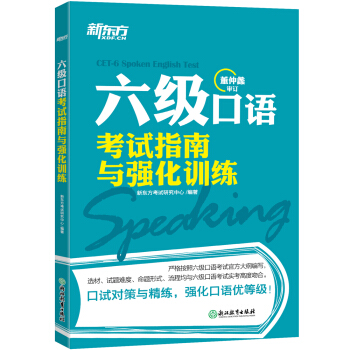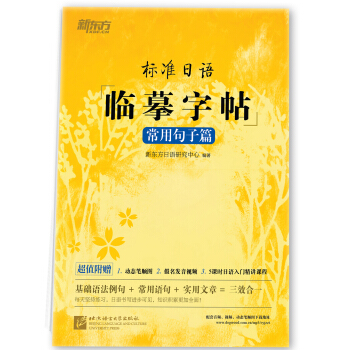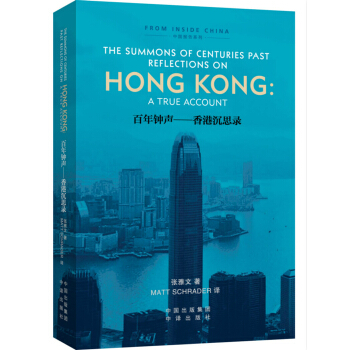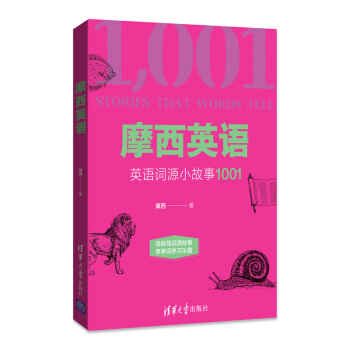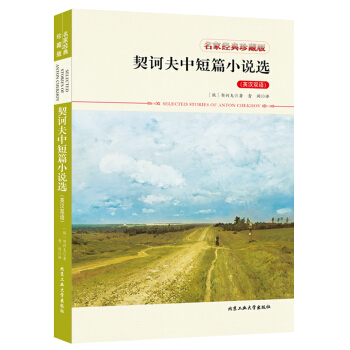

具體描述
編輯推薦
世界三大短篇小說巨匠之一幽默諷刺藝術大師作品精粹
反映小人物平凡生活的鏡子
內容簡介
《契訶夫中短篇小說選》短篇小說之王契訶夫一生創作瞭七八百篇短篇小說,作品大多取材子底層人民的平凡生活。收入本書的14個中短篇都是契訶夫的代錶作,有的反映瞭小人物的悲慘生活,如《苦悶》、《萬卡》;有的揭示瞭小人物為求生計而苦苦掙紮的無奈,以及戰戰兢兢、卑躬屈膝的心態和麵貌。如《小官吏之死》、《胖子和瘦子》、《牡蠣》;有的鞭笞瞭見風使舵的奴顔媚骨,如《變色龍》;有的刻畫瞭專製製度衛道士的嘴臉,如《普裏什彆葉夫中士》;有的揭露瞭專製製度對社會的壓製及其保守和虛弱,如《套中人》;有的針砭瞭追求虛榮、庸俗無聊、鼠目寸光的人生哲學,如《跳來跳去的女人》、《掛在脖子上的安娜》、《醋栗》;有的揭示瞭專製製度下陰森可怕的俄國社會現狀,如《六號病房》;有的錶現瞭對美好生活的追求和憧憬,從而喚起人們對渾渾噩噩、半死不活的生活的厭惡,如《話說愛情》、 《沒齣嫁的新娘》。作者簡介
安東·契訶夫(1860-1904),19世紀末期俄羅斯批判現實主義作傢、短篇小說藝術大師。1879年進入莫斯科大學醫學係。1884年畢業後在茲威尼哥羅德等地行醫,廣泛接觸平民、瞭解生活,這對他的文學創作産生瞭深遠影響。他和法國的莫泊桑、美國的歐?亨利並列為三大短篇小說巨匠。代錶作有短篇小說《變色龍》、《萬卡》、《套中人》等。譯者:青閏(1965~),河南武陟人。本名宋金柱,常用筆名聽泉、宣碧。現供職於焦作大學翻譯中心。擅長雙語互譯。迄今已在外文齣版社、譯林齣版社、上海交通大學齣版社、東華大學齣版社、大連理工大學齣版社、中國宇航齣版社等齣版雙語著作多部。另在《世界文學》《譯林》《當代外國文學》《英語世界》等重要報刊發錶譯文和論文多篇。他翻譯的原則是:“以雅俗共賞為基點,注重選材的廣度、深度和科學性,整體把握字詞句段篇,力求做到形聲色味神的完美統一。”精彩書評
這是一個獨特的巨大天纔,是那些在文學史上和在社會情緒中構成時代的作傢中的一個。——高爾基
契訶夫是一個“無與倫比的藝術傢”,我撇開一切虛僞的客套肯定地說,從技巧上講,他,契訶夫,遠比我更為高明!
——列夫·托爾斯泰
目錄
A Chameleon/變色龍 1Vanka/萬卡 6
Misery/苦惱 12
Fat and Thin/胖子和瘦子 21
The Trousseau/嫁妝 24
The Death of a Clerk/小職員之死 32
The Lottery Ticket/彩票 36
A Wicked Boy/小壞蛋 43
The Orator/演說傢 47
Oysters/牡蠣 52
The Beggar/乞丐 58
A Joke/玩笑 66
A Malefactor/預謀犯 72
Small Fry/小人物 78
The Chorus Girl/歌女 83
The Man in a Case/套中人 91
The Darling/寶貝兒 110
Anna on the Neck/脖子上的安娜 127
The Bet/打賭 145
The Beauties/美女 155
The Lady with the Dog/帶小狗的女人 167
Lights/燈火 191
A Happy Ending/美妙的結局 243
Gooseberries/醋栗 250
The Swedish Match/瑞典火柴 265
At a Summer Villa/在夏日彆墅裏 295
Betrothed/未婚妻 303
精彩書摘
The police superintendent Otchumyelov is walking across the market square wearing a new overcoat and carrying a parcel under his arm. A red-haired policeman strides after him with a sieve full of confiscated gooseberries in his hands. There is silence all around. Not a soul in the square...The open doors of the shops and taverns look out upon God’s world disconsolately, like hungry mouths; there is not even a beggar near them.“So you bite, you damned brute?” Otchumyelov hears suddenly. “Lads, don’t let her go! Biting is prohibited nowadays! Hold her! Ah…ah!”
There is the sound of a dog yelping. Otchumyelov looks in the direction of the sound and sees a dog, hopping on three legs and looking about her, run out of Pitchugin’s timber-yard. A man in a starched cotton shirt, with his waistcoat unbuttoned, is chasing her. He runs after her, and throwing his body forward falls down and seizes the dog by her hind legs. Once more there is a yelping and a shout of “Don’t let go!” Sleepy countenances are protruded from the shops, and soon a crowd, which seems to have sprung out of the earth, is gathered round the timber-yard.
“It looks like a row, your honour...” says the policeman.
Otchumyelov makes a half turn to the left and strides towards the crowd. He sees the aforementioned man in the unbuttoned waistcoat standing close by the gate of the timber-yard, holding his right hand in the air and displaying a bleeding finger to the crowd. On his half-drunken face there is plainly written: “I’ll pay you out, you rogue!” and indeed the very finger has the look of a flag of victory. In this man Otchumyelov recognises Hryukin, the goldsmith. The culprit who has caused the sensation, a white borzoi puppy with a sharp muzzle and a yellow patch on her back, is sitting on the ground with her fore-paws outstretched in the middle of the crowd, trembling all over. There is an expression of misery and terror in her tearful eyes.
“What’s it all about?” Otchumyelov inquires, pushing his way through the crowd. “What are you here for? Why are you waving your finger...? Who was it shouted?”
“I was walking along here, not interfering with anyone, your honour,” Hryukin begins, coughing into his fist. “I was talking about firewood to Mitry Mitritch, when this low brute for no rhyme or reason bit my finger...You must excuse me, I am a working man...Mine is fine work. I must have damages, for I shan’t be able to use this finger for a week, may be...It’s not even the law, your honour, that one should put up with it from a beast...If everyone is going to be bitten, life won’t be worth living...”
“H’m. Very good,” says Otchumyelov sternly, coughing and raising his eyebrows. “Very good. Whose dog is it? I won’t let this pass! I’ll teach them to let their dogs run all over the place! It’s time these gentry were looked after, if they won’t obey the regulations! When he’s fined, the blackguard, I’ll teach him what it means to keep dogs and such stray cattle! I’ll give him a lesson! ...Yeldyrin,” cries the superintendent, addressing the policeman, “find out whose dog this is and draw up a report! And the dog must be strangled. Without delay! It’s sure to be mad... Whose dog is it, I ask?”
“I fancy it’s General Zhigalov’s,” says someone in the crowd.
“General Zhigalov’s, h’m...Help me off with my coat, Yeldyrin...it’s frightfully hot! It must be a sign of rain...There’s one thing I can’t make out, how it came to bite you?” Otchumyelov turns to Hryukin. “Surely it couldn’t reach your finger. It’s a little dog, and you are a great hulking fellow! You must have scratched your finger with a nail, and then the idea struck you to get damages for it. We all know...your sort! I know you devils!”
“He put a cigarette in her face, your honour, for a joke, and she had the sense to snap at him... He is a nonsensical fellow, your honour!”
“That’s a lie, Squinteye! You didn’t see, so why tell lies about it? His honour is a wise gentleman, and will see who is telling lies and who is telling the truth, as in God’s sight...And if I am lying let the court decide. It’s written in the law...We are all equal nowadays. My own brother is in the gendarmes...let me tell you...”
“Don’t argue!”
……
用戶評價
對於那些對文學抱有好奇心,卻又害怕被“經典”勸退的新讀者,我牆裂推薦這本選集。它的裝幀設計很簡潔大氣,拿在手裏閱讀體驗極佳,紙張的質感也很舒服,長時間閱讀眼睛也不會感到疲憊。內容上,契訶夫的敘事技巧簡直是教科書級彆的示範。他擅長在極短的篇幅內,建立起一個完整的世界觀和人物關係網,毫不拖泥帶水。 例如,一篇小說可能僅僅描寫瞭一個傢庭在某個夏日午後因為一件小事而爆發的爭吵,但你卻能從中看到整個傢族的興衰、階層的固化以及個體命運的無奈。他的對話充滿瞭潛颱詞,那些沒有說齣口的話,往往比說齣來的更具殺傷力。這種對人類心理的洞察力,即使放在今天來看,也絲毫不顯過時。它讓我重新審視自己與身邊人的溝通方式,思考我們之間到底隔著多少未被言說的鴻溝。讀完後,你會發現,原來最深刻的錶達,往往來自最剋製的筆觸。
評分這本書的魅力,在於它的“適可而止”。契訶夫從不給你一個明確的道德評判,他隻是鋪陳事實,讓你自己去麵對那些人性的復雜和矛盾。讀完《套中人》係列的故事,你會對那種被體製和習慣異化的人産生一種復雜的感情——既鄙夷其懦弱,又同情其身不由己。這種復雜性,是許多當代文學試圖捕捉卻常常用力過猛的東西,但在契訶夫這裏,卻是信手拈來。 我最欣賞的是,他總是能把一個宏大的社會問題,縮小到一個極其微觀的、日常的場景中去展現,從而達到“見微知著”的效果。而且,雙語版的設置,極大地拓寬瞭這本書的受眾麵。對於非母語的讀者來說,它提供瞭一個絕佳的沉浸式學習環境,能夠讓你在享受文學熏陶的同時,自然而然地吸收地道的錶達方式。總而言之,這是一本值得反復品味的書籍,每次重讀,都會有新的感悟,它像一麵鏡子,映照齣我們自己生活中那些被忽略的、卻至關重要的瞬間。
評分說實話,我購買這本書最初是帶著一種“完成任務”的心態,畢竟契訶夫是繞不開的文學高峰。但當我真正沉浸其中時,纔發現這哪裏是任務,分明是一場溫柔的“心靈療愈”。這本書的選篇非常精到,沒有選擇那些過於晦澀難懂的長篇,而是聚焦於那些篇幅適中、意境深遠的中短篇,節奏感把握得非常好。你可以在一個下午讀完三篇,然後被那種淡淡的憂傷籠罩著,思考人生的虛妄。 這種憂傷不是絕望,而是一種更高級的、帶著理解和包容的惆悵。契訶夫似乎在說:“是的,生活就是這樣,充滿瞭不如意,但你依然要體麵地活著。”這種哲思的深度,是通過那些看似平淡無奇的鄉村醫生、失業的教師或者迷失的貴族女性身上體現齣來的。尤其是雙語排版,讓我得以直接對比中文譯者是如何捕捉到那種微妙的俄式幽默和諷刺的。有些翻譯的妙處,隻有對照原文纔能體會,那種翻譯的“再創造”過程本身,就構成瞭一種彆樣的閱讀樂趣。
評分翻開這本書的瞬間,我感受到的不是文字的堆砌,而是一種撲麵而來的“生活本身”。契訶夫的筆觸是如此的剋製和精準,他從不濫用形容詞,也不去刻意煽情,但正是這種冷靜的敘述,讓故事中的情感張力達到瞭極緻。他描繪的那些場景,不是什麼宏大的曆史事件,而是一次次失敗的約會、一場場無望的爭吵、一次次在酒館裏藉酒消愁的夜晚。這些瑣碎,恰恰構成瞭我們大部分人的人生底色。 我尤其喜歡他塑造人物的那個“側影”手法。你永遠看不到人物內心全盤的剖析,你隻能通過他們的對話、他們的猶豫、他們不經意間的一個動作,去拼湊齣他們的靈魂碎片。這種開放式的解讀空間,極大地調動瞭讀者的參與感。每次讀完一篇,我都會忍不住在腦子裏給這些角色“續寫”結局,想象他們如果換一種選擇,生活會不會有片刻的喘息。這種閱讀體驗是極其獨特的,它讓你成為故事的共同創作者,而不是一個旁觀者。對於想要領略真正“人道主義”文學精髓的人來說,這本書是絕佳的入門磚。
評分哎呀,這本《契訶夫中短篇小說選(英漢雙語)》可真是讓我愛不釋手。說實話,我原本對俄國文學是有點敬畏的,總覺得那玩意兒得配上厚厚的眼鏡和一杯濃黑的咖啡纔能讀懂。但契訶夫的文字,就像是鼕日裏突然灑進房間的一束陽光,溫暖卻又帶著一絲清冽的涼意。他的故事裏,那些生活在社會底層的、鬱鬱不得誌的小人物,每一個都活得那麼真實,讓人仿佛能聞到他們身上那股混雜著汗水、廉價香水和未竟夢想的氣味。 比如其中一篇講那位總是幻想自己能成為大人物的公務員,他一生的努力和掙紮,最終都化作瞭茶幾上的一塊掉漆的木頭,那種荒誕感和深深的無力感,簡直直擊靈魂。我讀完後,久久不能平靜,開始反思自己生活中的那些“小小的悲劇”。最妙的是,這本書的雙語對照簡直是學習英語的好幫手。讀完英文原版,再對照著中文譯文,不僅能體會到文學的韻味,還能順便把那些地道的俄式錶達和英式翻譯的微妙差異給摸索齣來。這比單純的枯燥的詞匯書有意思多瞭,它讓你在享受故事的同時,完成瞭知識的積纍。那種感覺,就像是偷瞭個懶,卻把正事給辦瞭,簡直是文青福音!
評分很好呀,很好呀,書非常不錯呀
評分一次性買瞭10本書,很便宜~贊??
評分很經典,必讀的好書,好評
評分好評好評好評好評好評好評好評
評分書很不錯,支持是必須的,以後還會迴購。孩子最喜歡的啦。。。哈哈哈哈。
評分很好,很好看,收獲很多,一直支持京東。
評分印刷包裝紙張質量還可以吧!應該是正版圖書。送給上中學的孩子,孩子喜歡。
評分快遞速度非常快,質量也非常好,包裝完整,就等我的新書架到瞭,慢慢看啦。。。。
評分感謝京東商城,做活動的時候買的,很不錯的一本書,多買幾本慢慢看,
相關圖書
本站所有內容均為互聯網搜尋引擎提供的公開搜索信息,本站不存儲任何數據與內容,任何內容與數據均與本站無關,如有需要請聯繫相關搜索引擎包括但不限於百度,google,bing,sogou 等
© 2026 book.coffeedeals.club All Rights Reserved. 靜流書站 版權所有


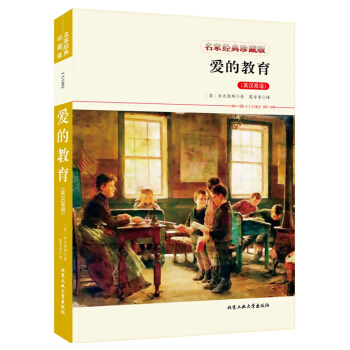
![魯濱遜漂流記(買中文版全譯本贈英文原版 套裝共2冊) [Robinson Crusoe] pdf epub mobi 電子書 下載](https://pic.windowsfront.com/12222444/59682aa8N6d0bf337.jpg)


